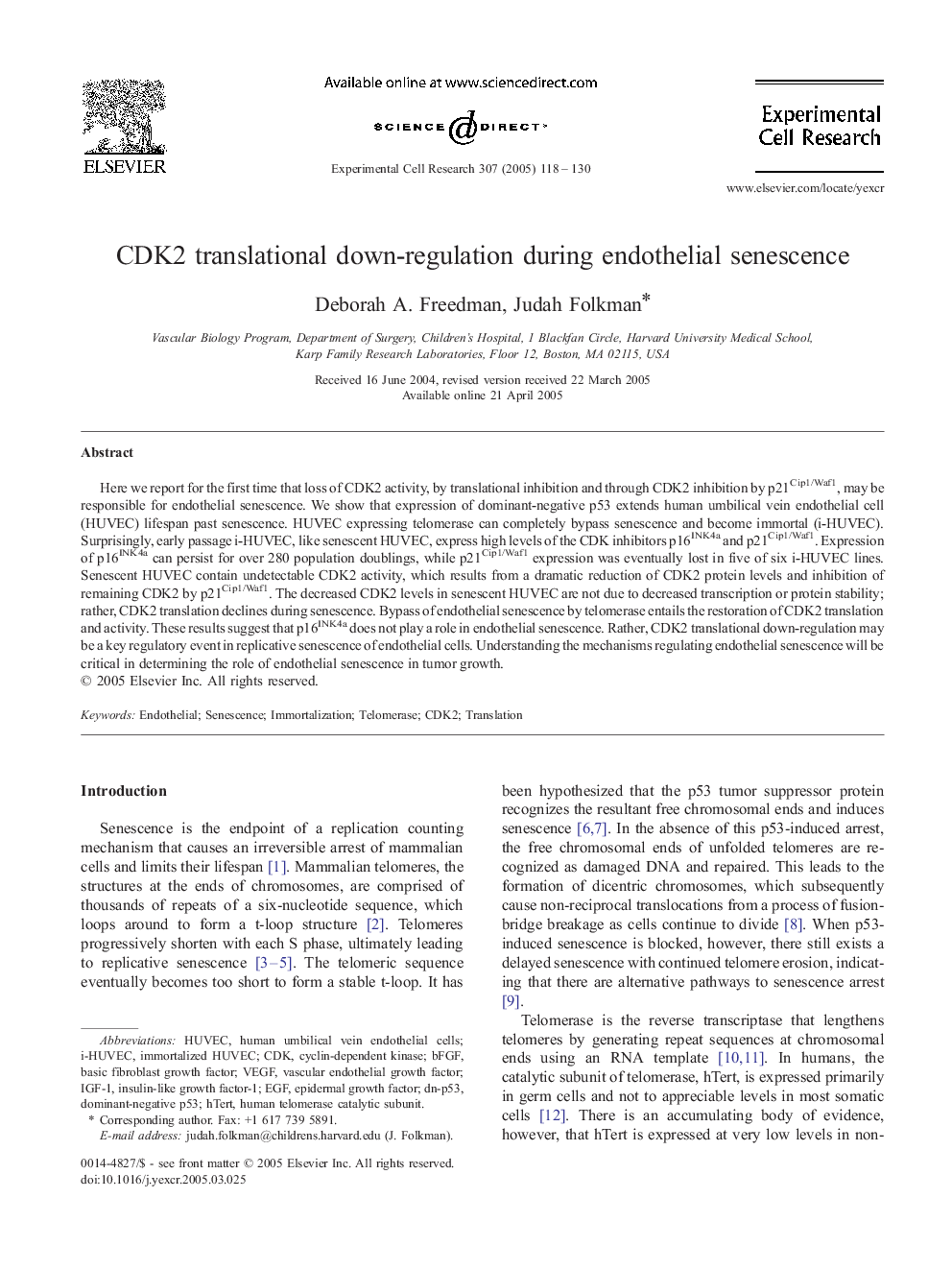| کد مقاله | کد نشریه | سال انتشار | مقاله انگلیسی | نسخه تمام متن |
|---|---|---|---|---|
| 10905197 | 1086737 | 2005 | 13 صفحه PDF | دانلود رایگان |
عنوان انگلیسی مقاله ISI
CDK2 translational down-regulation during endothelial senescence
دانلود مقاله + سفارش ترجمه
دانلود مقاله ISI انگلیسی
رایگان برای ایرانیان
کلمات کلیدی
EGFCDK2bFGFCDKHUVECIGF-1hTERT - htertEndothelial - اندوتلیالinsulin-like growth factor-1 - انسولین مانند عامل رشد 1Translation - ترجمه (زیستشناسی)Telomerase - تلومراز Immortalization - جاودانگیHuman umbilical vein endothelial cells - سلول های اندوتلیالی ورید ناف انسانepidermal growth factor - عامل رشد اپیدرمیVascular endothelial growth factor - فاکتور رشد اندوتلیال عروقیVascular Endothelial Growth Factor (VEGF) - فاکتور رشد اندوتلیال عروقی (VEGF)basic fibroblast growth factor - فاکتور رشد فیبروبلاست پایهSenescence - پیریcyclin-dependent kinase - کییناز وابسته به سیکلین
موضوعات مرتبط
علوم زیستی و بیوفناوری
بیوشیمی، ژنتیک و زیست شناسی مولکولی
تحقیقات سرطان
پیش نمایش صفحه اول مقاله

چکیده انگلیسی
Here we report for the first time that loss of CDK2 activity, by translational inhibition and through CDK2 inhibition by p21Cip1/Waf1, may be responsible for endothelial senescence. We show that expression of dominant-negative p53 extends human umbilical vein endothelial cell (HUVEC) lifespan past senescence. HUVEC expressing telomerase can completely bypass senescence and become immortal (i-HUVEC). Surprisingly, early passage i-HUVEC, like senescent HUVEC, express high levels of the CDK inhibitors p16INK4a and p21Cip1/Waf1. Expression of p16INK4a can persist for over 280 population doublings, while p21Cip1/Waf1 expression was eventually lost in five of six i-HUVEC lines. Senescent HUVEC contain undetectable CDK2 activity, which results from a dramatic reduction of CDK2 protein levels and inhibition of remaining CDK2 by p21Cip1/Waf1. The decreased CDK2 levels in senescent HUVEC are not due to decreased transcription or protein stability; rather, CDK2 translation declines during senescence. Bypass of endothelial senescence by telomerase entails the restoration of CDK2 translation and activity. These results suggest that p16INK4a does not play a role in endothelial senescence. Rather, CDK2 translational down-regulation may be a key regulatory event in replicative senescence of endothelial cells. Understanding the mechanisms regulating endothelial senescence will be critical in determining the role of endothelial senescence in tumor growth.
ناشر
Database: Elsevier - ScienceDirect (ساینس دایرکت)
Journal: Experimental Cell Research - Volume 307, Issue 1, 1 July 2005, Pages 118-130
Journal: Experimental Cell Research - Volume 307, Issue 1, 1 July 2005, Pages 118-130
نویسندگان
Deborah A. Freedman, Judah Folkman,